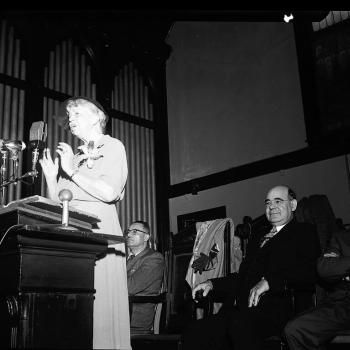March is National Women's History Month.

Event Description
Our shared history unites families, communities, and nations. Although women's history is intertwined with the history shared with men, several factors - social, religious, economic, and biological - have worked to create a unique sphere of women's history. This year's theme is "Women Inspiring Innovation Through Imagination: Celebrating Women in Science, Technology, Engineering and Mathematics".
The stories of women's achievements are integral to the fabric our history. Learning about women's tenacity, courage, and creativity throughout the centuries is a tremendous source of strength. Until relatively recently, this sphere of women's history was overlooked and undervalued. Women's achievements were often distorted, disdained, and denied. But, knowing women's stories provides essential role models for everyone. And role models are genuinely needed to face the extraordinary changes and unrelenting challenges of the 21st century.
Classroom Activity
Explore the accomplishments of women in U.S. history with your class by creating a scrapbook that highlights the accomplishments of famous American women.
- First, decide how to organize the scrapbook. Group entries thematically, such as Women in Sports, Women in Politics, or Women in Science. Pages can be arranged chronologically, by date, year, or decade. Students may also choose a unique approach, such as Women's History A-Z, with an entry for each letter of the alphabet. Use the Alphabet Organizer to get started.
- Have students work individually, or in groups, to complete each page. Each entry should include biographical data, a photograph or other representation, and a summary of the famous woman's contribution to history. The Bio-Cube can be used to organize the information.
Your completed scrapbook can be displayed in the school library during Women's History Month and can serve as a reference tool in your classroom. You may also want to expand this activity to include women's contributions to world history.
Websites
This page, from the National Women's History Project, offers an annotated list of this year's honorees.
Scholastic presents this special feature on Women's History Month. There are profiles, a quiz, a history of this event, and a timeline of women's history milestones.
This Scholastic Webpage highlights the achievements of five women who have changed history, including Amelia Earhart, Rosa Parks, Sally Ride, Dr. Mae Jemison, and Melba Pattillo.
This resource, from the My Hero Project, includes information about women from all walks of life. Read about these artists, scientists, authors, educators, and other women who have made a difference.